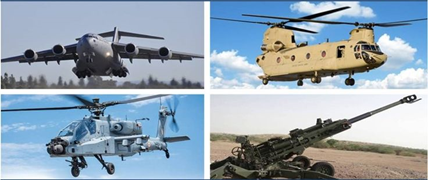

22nd May 2023 (7 Topics)
Context
- The United States and India have decided to support joint development and production in India, including prospective sectors and initiatives where defence industries could collaborate.
Key Highlights:
- India and the U.S. are discussing possibilities of co-producing jet engines, long-range artillery and infantry vehicles under the Initiative on Critical and Emerging Technologies (iCET).
- The 17th meeting of the India-U.S. Defence Policy Group (DPG) chaired by Defence Secretary from India and Under Secretary of Defence for Policy reviewed the progress made in furthering defence industrial cooperation and operationalising the India-U.S. Major Defence Partnership.
- The INDUS-X is going to be a major initiative under iCET and the focus is firmly on advancing high-tech cooperation.
- The General Electric (GE) application to the U.S. government to licence-manufacture its GE-414 engine in India has already been chosen to power India’s Light Combat Aircraft (LCA)-MK2 and another proposal to jointly produce a jet engine for India’s future indigenous jets for which GE is competing with Safran of France and Rolls Royce of U.K.
- According to the U.S.-India Strategic Partnership Forum (USISPF), only four countries make jet engines for planes.

Background: India - US Defense Tie
- The two parallel tracks of dialogue began in the 1990s, with the strategic dialogue shifted gears following the nuclear tests of 1998 and imposition of sanctions by the U.S.
- India-U.S. concluded a bilateral civil nuclear cooperation agreement in 2008.
- The defence dialogue began in 1995 with the setting up of the Defence Policy Group at the level of the Defence Secretary and his Pentagon counterpart and three Steering Groups to develop exchanges between the Services. This was formalised and enlarged into the India-U.S.
- Defence Framework Agreement which was renewed for 10 years in 2015. Since then, the U.S. has signed defence contracts of over $15 billion
- Pathfinder projects have been identified under this Defence Technology and Trade Initiative (DTII), and an India Rapid Reaction Cell in the Pentagon was set up to get around export control licensing and other bureaucratic hurdles.
- In 2016, India was designated as a ‘Major Defence Partner’ country and the inclusion of India in the Strategic Trade Authorisation-1 (STA-1) category allowed the DTII to graduate to more ambitious projects.
- The transfer of state-of-the-art UAV technology to India will be the first significant progress.
More Articles


